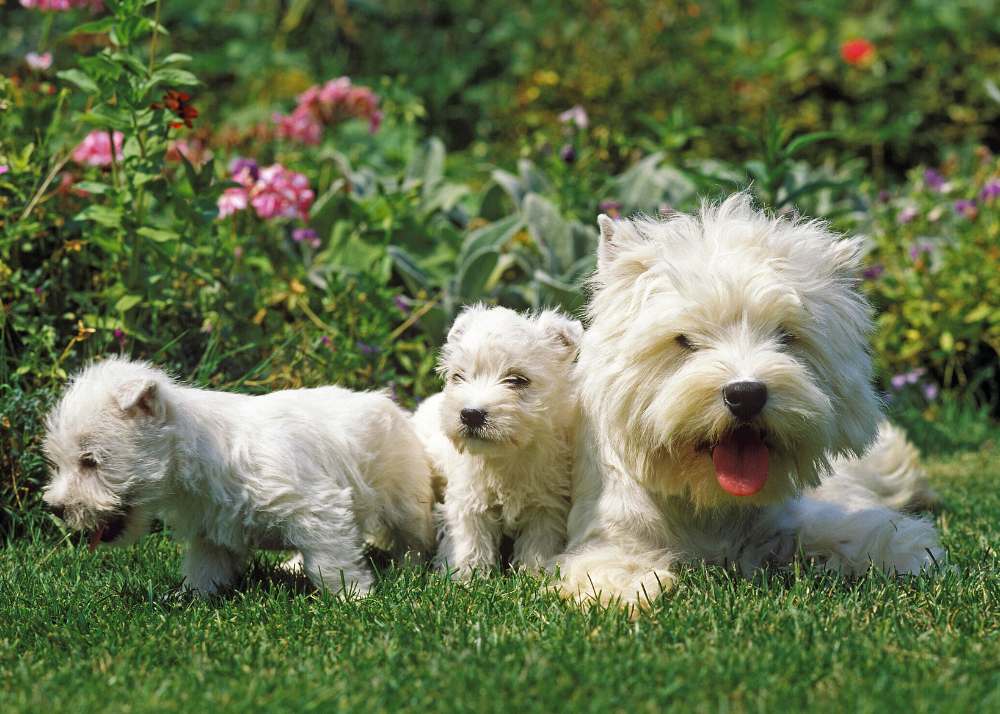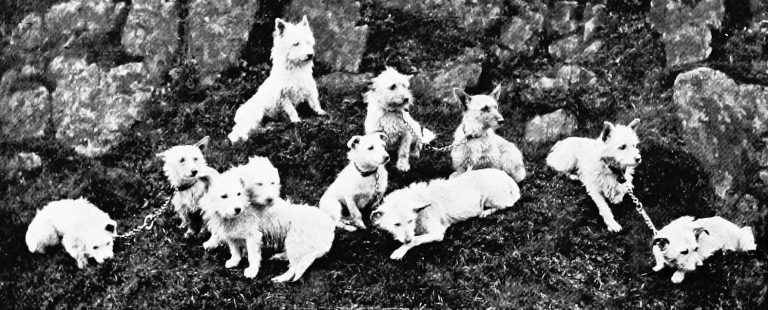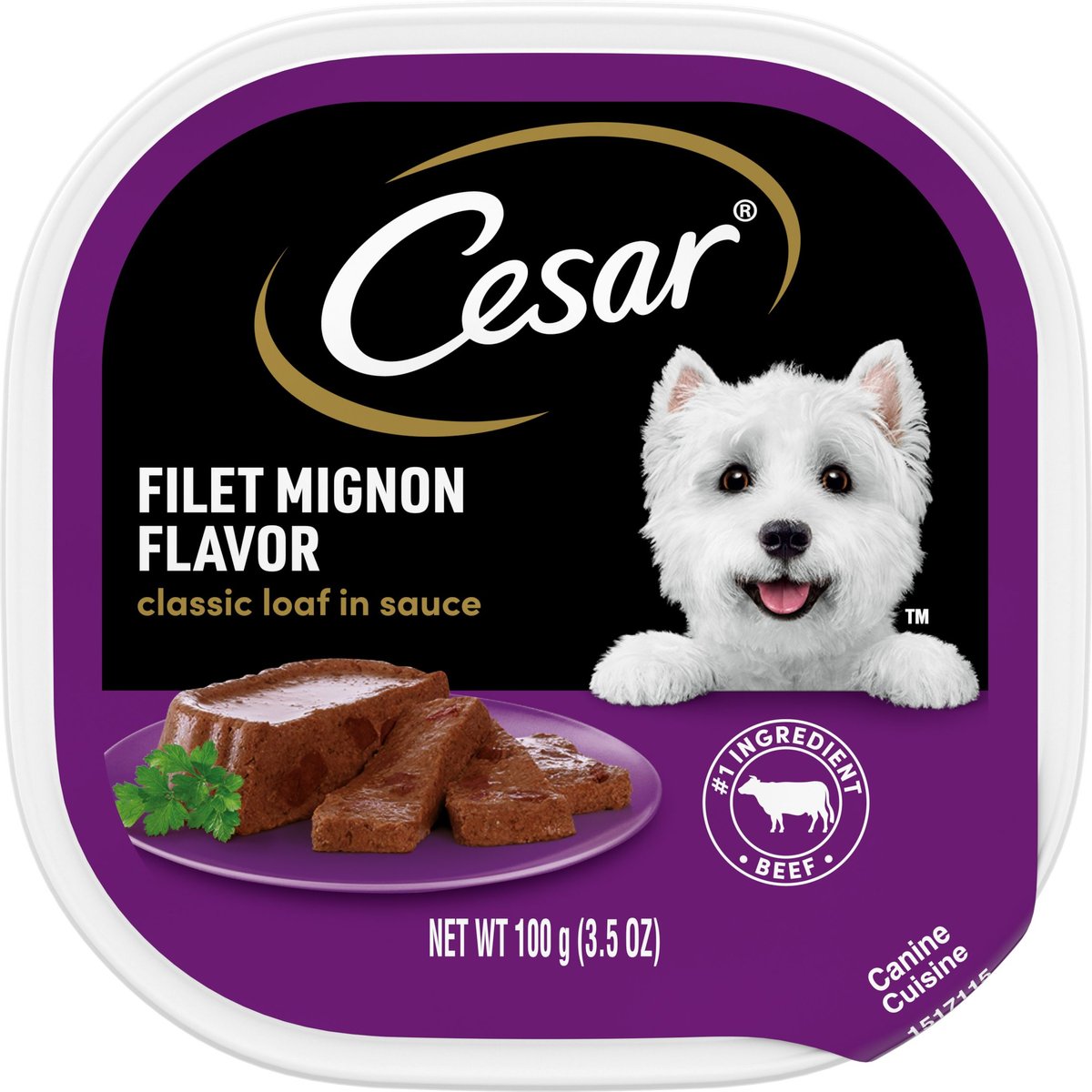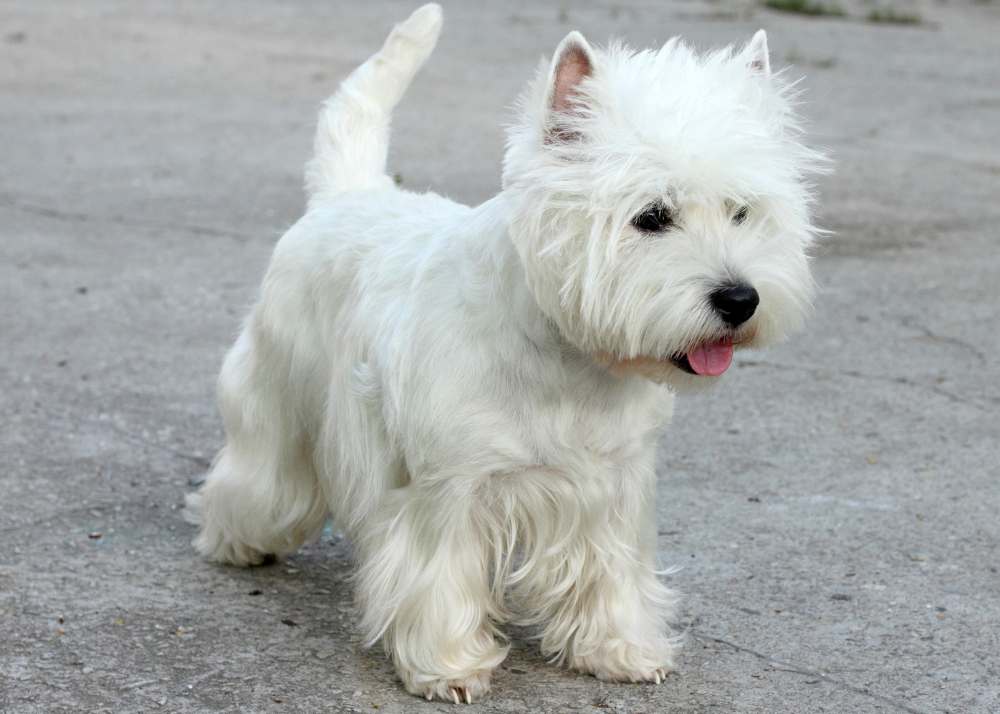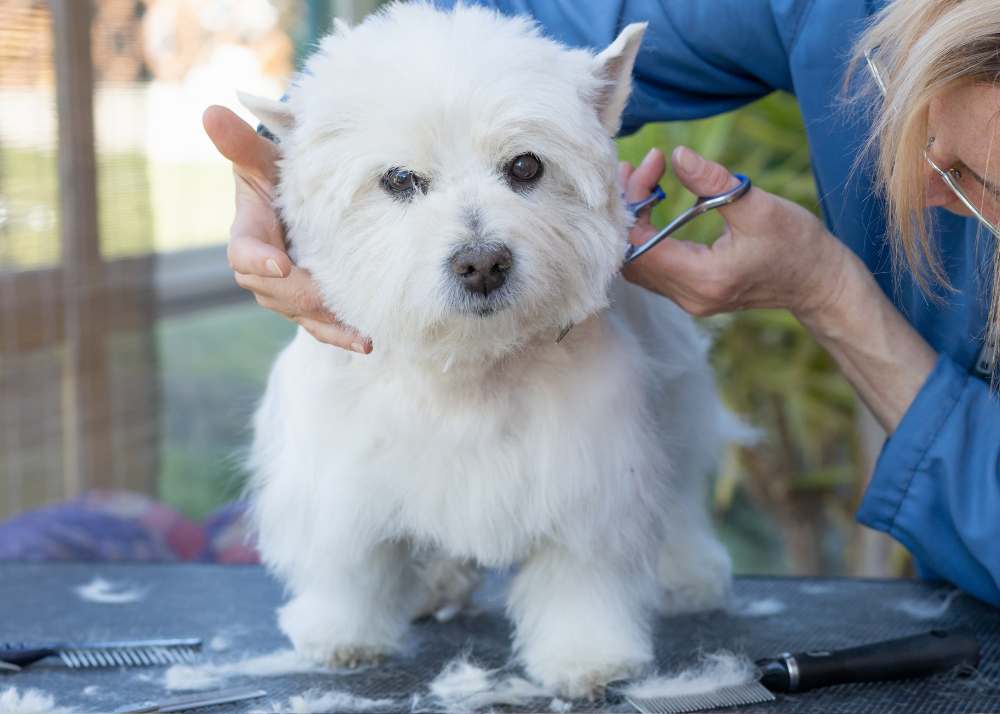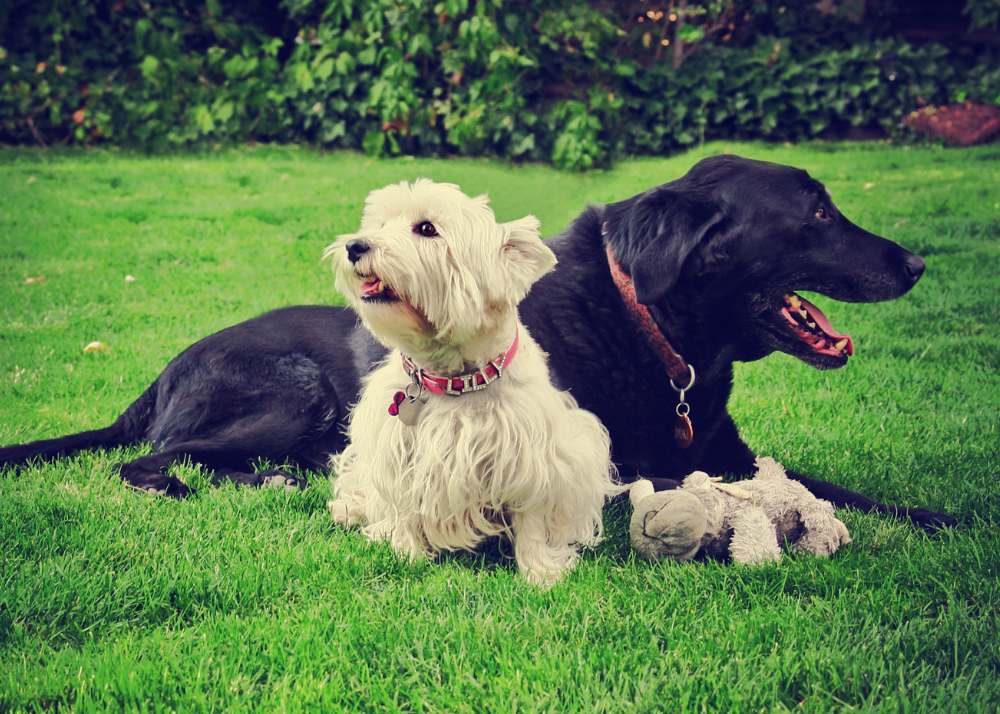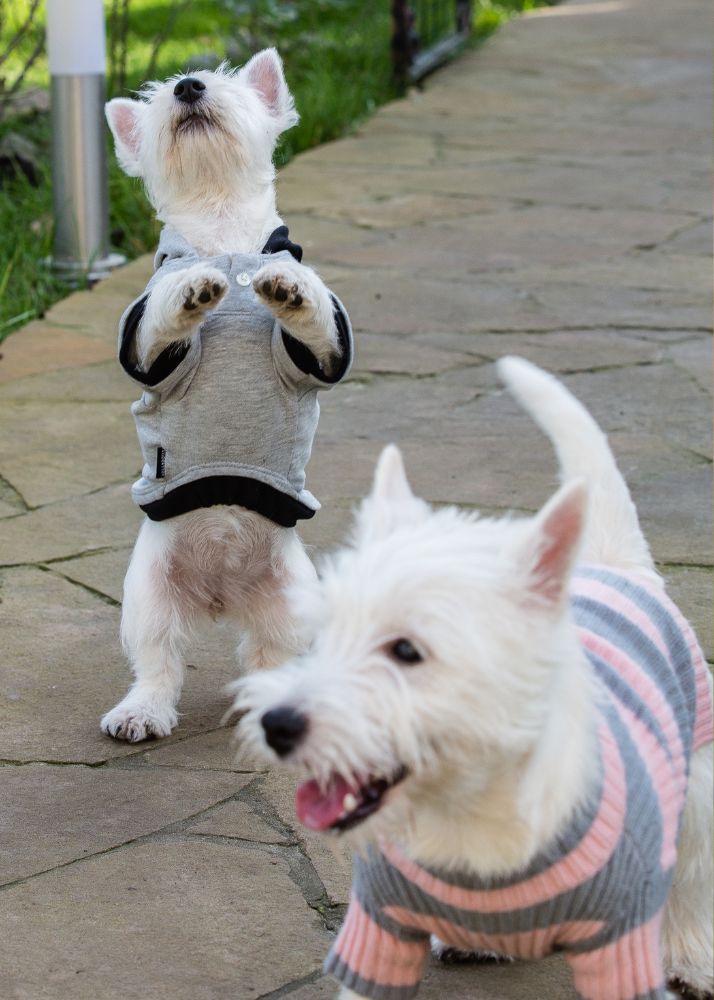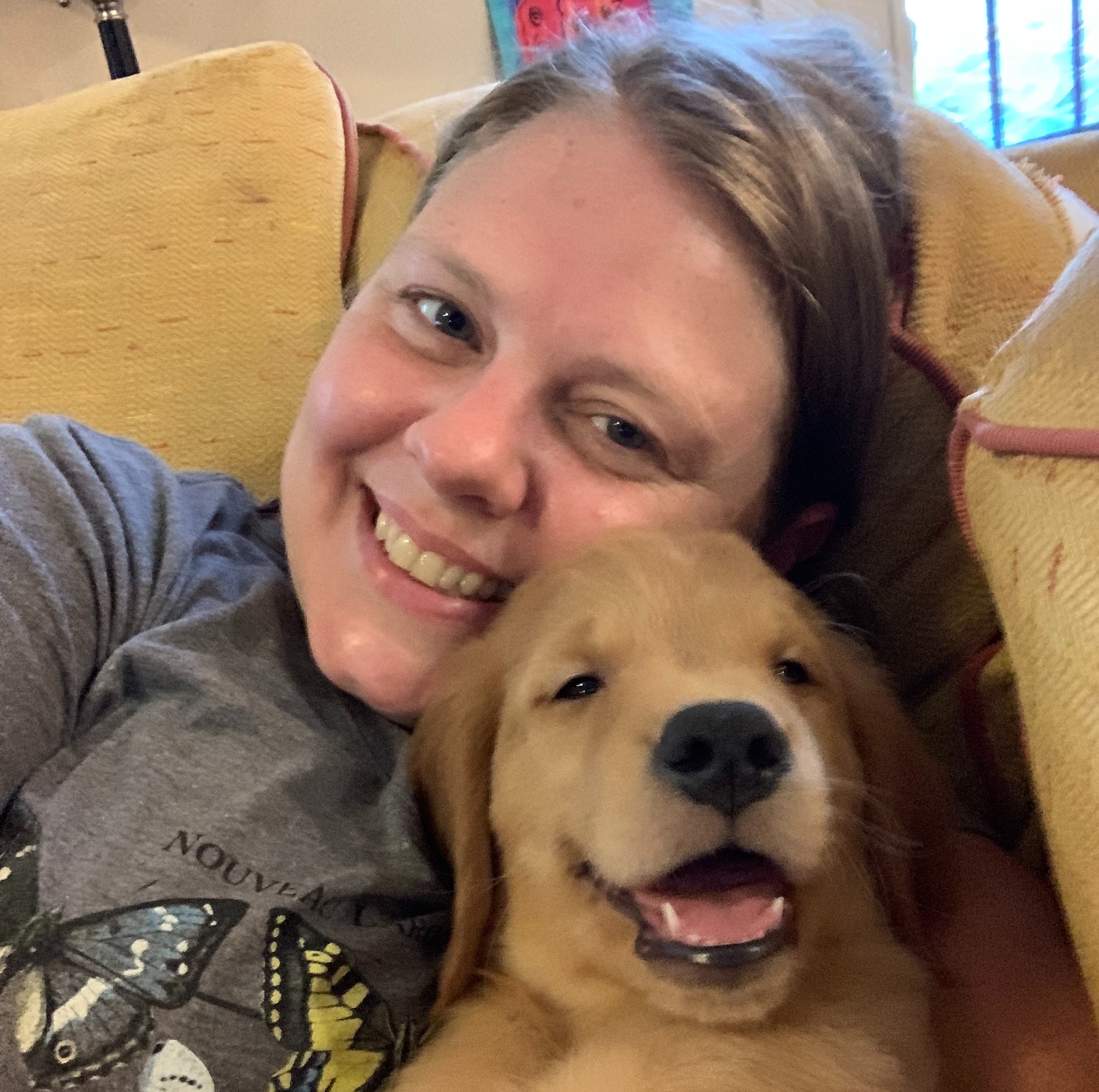It’s 1860 in Scotland, and your clan is on another hunt. You love being out in the unpredictable, harsh weather of the Scottish highlands in pursuit of game, and your pack of little terriers increases the chance you’ll all be feasting in the Great Hall.
You look across the boggy moor and see a pack of little white dogs zipping through the underbrush, catching glimpses as they push through following a scent. You hear a series of excited yaps and barks – they must have caught the prey! You and your clan will eat well tonight after a long day of this scenario repeating.
Later on, while you stuff yourself with a braised hare, you reflect on how glad you are that you decided to breed just your cream and white dogs of your pack despite naysayers thinking your darker terriers were superior. You can’t wait to boast about your success to the other clans.
“Riiiiing! Riiiing!”
A phone call jolts you awake from your nap, and you find your West Highland White Terrier licking your face reminding you it’s dinner time. “That was quite the dream I had!” you thought as you open a Cesar’s filet mignon-flavored meal for your loyal sidekick, the same little face peering up at you matching the one on the label.
There is never a dull moment in the world of a West Highland White Terrier puppy owner. Your days are filled with your Westie bringing you joy and making you laugh with its silly antics. You wouldn’t have it any other way.
Even if you don’t have your own Scottish highland slope right outside your clan’s castle for chasing wild game, West Highland White Terrier puppies are a wonderful fit for those willing to learn all about their care to lead a happy, long life.
Discover what it’s like to be a West Highland White Terrier puppy owner to see if this spunky dog breed is right for you.
The History and Origin of West Highland White Terrier Puppies
West Highland White Terriers, often shortened to Westies, originated in the harsh highland terrain of Argyllshire on the southwest coast of Scotland. The weather can be brutal with a year-round temperature average of just under 50° and 200 rainy, dreary days, not to mention fierce winds whipping through the land.
Nobles and gentry all had the same problem of infestation of vermin in their homes and granaries. A variety of little terriers served clans as vermin catchers, hunting foxes, rats, otters, hares, badgers, and anything else that threatened their means of living while also providing sustenance and camaraderie out on the hunt. Other related terriers from this region included the Cairn, Roseneath, Pittenweem, Scottish, Dandie Dinmont, and Skye Terrier dog breeds – quite a lot considering Scotland is roughly the size of the state of South Carolina. These dog breeds were known as "earth dogs" because when chasing prey they burrowed deep into their holes, an expression known to hunters as "going to earth."
Each isolated clan bred terriers to their standards, so the terrier breeds did not mix due to their tight-knit, isolated clans. One clan in the 1800s in particular was responsible for the origin of Westies. Colonel Edward Donald Malcolm, the 16th Laird of Poltalloch House, is credited with developing the dog we know today as a West Highland White Terrier, then called Poltalloch Terriers. Like other clans, he kept a pack of the very best hunting terriers regardless of color for hunting vermin. However, legend has it that Colonel Malcolm accidentally shot and killed one of his favorite reddish-brown dogs because he mistook it for a fox or a hare. From that point on, he only bred cream and white highland terriers despite a local belief that darker terriers were superior all around.
The first dog show featuring these closely related breeds in the late 1800s favored the Poltalloch terriers. In 1904, the West Highland White Terrier was first shown under its modern name at a Scottish Kennel Club dog show in Edinburgh. Westies arrived in America around 1905, and by the end of the decade had become an official dog breed in the American Kennel Club.
A woman named May Pacey devoted her life to further developing the breed with a rigorous program breeding several champions. She sent various litters overseas during both World Wars, proving to be a smart idea since the breed had no problem flourishing while others were on the brink of extinction due to worldwide unrest.
The modern popularity of Westies
West Highland White Terrier dogs continue to delight their owners and the public with their adorable, spunky personalities. They sit at #45 out of the AKC’s list of 199 most popular dog breeds of 2022 in between Weimaraners and Portuguese Water Dogs.
Shoppers can see Westies every day on grocery store shelves in the dog food aisle. People may recognize the dog on Cesar’s small breed gourmet dog food brand as a Westie. When not serving as the mascot of an international brand, West Highland White Terriers make great actors in TV series like House and Seventh Heaven because of their easygoing temperament and dapper looks. Several celebrities own or have owned Westies, including Matthew McConaughey, Kate Beckinsale, Robert Patterson, Scarlett Johannson, Jennifer Anniston, and Betty White.
A plethora of social media accounts found on all platforms document what it’s like living with a West Highland White Terrier. Followers enjoy seeing what silly antics these little white dogs will come up with next.
What Do West Highland White Terrier Puppies Look Like?
West Highland White Terrier puppies are darling little dogs with black button noses that light up a room when they prance in confidently. An adult Westie will grow to be no more than 11 inches tall and weigh 15-20 pounds.
While they may be small and look like cotton balls, they are not delicate. Rather, Westies are hardy dogs with sturdy, muscular, rectangular compact builds. They sport pointy v-shaped ears that stand up on top of their wide, round heads. Their carrot-shaped tails wag when they greet you with eager, beady dark eyes staring adoringly at you. A Westie’s deep chest and powerful hind legs are designed to romp around the ground looking for prey to hunt, and they do a fine job with their bodies built perfectly for the task.
Grooming a Westie puppy’s coat
While West Highland White Terriers may appear at first glance to be fluffy and soft, their white coats are actually rough to the touch. They have a double coat with a dense, harsh, waterproof outer coat and a fine, downy undercoat designed to protect them from all weather conditions and tough brambles when hunting. A Westie’s coat is also designed to repel dirt and is easily removed by brushing.
Never shave a Westie! You run the risk of taking away their ability to regulate temperature, even if you think they are too hot with their double coat. The two layers work together to trap air to cool or warm up a Westie. Instead of shaving, Westies can be brushed or hand-stripped, where dead hairs are plucked out.
West Highland White Terrier puppy owners can opt to style their Westies in a variety of ways. Some choose to keep a long beard and overcoat 1-2 inches long on the bottom and keep the top clipped short, or owners can opt for one uniform length.
These white coats may appear pristine, but they are built to work outside. As Colonel Malcolm found, their white coats helped them stand out against the landscape. While they are all-white, Westies can have dark pigmentation around their eyes and muzzles, so don’t try to scrub it off when grooming a West Highland White Terrier. Speaking of scrubbing, West Highland White Terrier puppies will only need a bath when they get muddy or stinky.
While they don’t shed very much, Westies are not considered hypoallergenic. Westies will need regular grooming; if they don’t, they become matted and messy. Instead of viewing this task as a chore, think of it as one of the many ways to bond with your puppy.
What’s the Personality Like of Westie Puppies?
When considering West Highland White Terrier puppies, it’s important to see if the dog breed’s personality traits mesh well with those of your family. If you’re more laid-back and enjoy a calm life, a Westie might not be the right fit for you. These lively, active dogs require lots of mental stimulation and can demand your attention, and Westie owners are happy to oblige. Here are some personality quirks potential Westie owners should factor into their decision.
Center of the family
West Highland White Terrier puppies love to be where their people are and will always try to be the center of attention. They form close bonds with their owners and are very affectionate with the people they love.
Friendly warm-up
West Highland White Terriers get along with just about everyone. Some may be a bit wary of strangers but usually warm up quickly when you reassure them they’re friends, not foes. For this reason, it’s important to socialize Westies while they are young so they can be a friend to all instead of being suspicious and fearful of new people and situations.
Love of life
West Highland White Terriers are self-confident, spunky little puppies with a love of life. They’re always looking to entertain you and make you smile. Westies have a charming air about them. They can also be mischievous, and their antics will have you in stitches.
Skip the small pets
Due to their innate traits, West Highland White Terriers are not necessarily a great fit for households with small pets like gerbils and rabbits they would view as prey. Early socialization will help, but their prey drive could kick in thanks to their nature at any time.
Terrier talk
Like other terrier breeds, Westies like to bark for a variety of reasons. They bark when they’re trying to communicate something to you like hunger, excitement, boredom, when they want you to play, or for no reason you can decipher. Excessive barking can be a nuisance! You’ll need to train your Westie not to bark, especially if you live in an environment with close neighbors such as an apartment or condo. They may view the wind blowing as an imminent threat to your well-being, but they’re just trying to protect you.
Playful with older children
A West Highland White Terrier puppy is a lively little playmate for a household with children. Like with any small dog, make sure your younger children are supervised around your puppy, especially if they aren’t sure how to play gently yet with puppies. A Westie’s energy level is a great match for playtime, and you’ll be glad they are tiring each other out!
Training and Exercise Requirements of West Highland White Terrier Puppies
Training and exercise go paw-in-paw for West Highland White Terrier puppies. A tired Westie is a happy and well-behaved Westie!
Training a Westie puppy
Westie puppies are agreeable and eager to please little dogs. They’re quick learners who will pick up on tricks and commands quite easily. A Westie puppy does not respond well at all to harsh or overly firm training methods, so stay away from these techniques. Instead, use positive reinforcement to reward their intelligence.
West Highland White Terrier puppy owners will encounter typical terrier independence. While very intelligent, terriers have a stubborn streak that could derail some training sessions. Patience and consistency are needed when training your Westie puppy. Their recall unfortunately can be dismal once they catch sight of potential prey, so do your best to mitigate distractions when teaching the “Come” command.
Westie exercise needs
Westies are a high-energy dog breed that needs at least 30 minutes of vigorous exercise a day. Owners can achieve this with walks, mental stimulation like toys and activities that challenge their minds, swimming, and more. Remember, meeting their exercise needs means your Westie is far more likely to behave and not engage in undesirable behaviors due to boredom, puppy separation anxiety, destroying property, or digging.
How to Care for Westie Puppies
West Highland White Terrier puppies can live 13-15 years, a long and fulfilling life if you take care of them properly.
While a relatively healthy breed, there are some Westie health concerns to be aware of when owning a West Highland White Terrier puppy. They can suffer from hip and elbow dysplasia, atopic dermatitis, certain cancers, pulmonary fibrosis, and craniomandibular osteopathy in terriers, a condition where the bone swells when the skull and jaw bones are growing and developing.
Establishing a relationship with a trusted licensed veterinarian gives you a professional partner when striving for a great life for your Westie puppy. Maintaining a regular vaccination schedule, giving preventative flea, tick, and heartworm medications, keeping up with dental care due to their small mouths, feeding them high-quality dog food, and meeting their physical and mental needs will keep your Westie puppy in great shape.
West Highland White Terriers can get overweight quickly, so watch their food intake. Because they are so cute, you may want to feed them lots of treats. However, don’t get in the habit of giving them too many, as obesity in dogs can cause serious health problems.
Where Can I Find Westie Puppies?
If you’re charmed by Westies, you may wonder where to find West Highland White Terrier puppies. You might have seen a post on a local Facebook group of someone advertising Westies. However, how can you guarantee you won’t be scammed?
Backyard breeders and puppy mills try to capitalize on the popularity of West Highland White Terrier puppies by offering enticing low prices. They live in squalor and have no health care, both parents and puppies alike. You’ll have no idea what type of vaccinations they’ve had (or any for that matter). Because small white dog breeds may look alike when very young, you might not even be buying a Westie after all!
So where can you turn to adopt Westie puppies from a trustworthy, reputable breeder?
Adopt West Highland White Terrier Puppies at Pawrade
At Pawrade, we take pride in pairing potential puppy pawrents with vetted, reputable breeders. We have done all the screening for you, only hand-selecting the very best West Highland White Terrier puppy breeders who pass our rigorous standards.
We facilitate a safe, secure Westie puppy adoption process if you’re looking for West Highland White Terrier puppies. We guarantee that you will not be scammed using our services with 100% certainty. In addition, all puppies come with an extended health guarantee with records of all vaccinations and a puppy contract designed to give you peace of mind while protecting you, your Westie breeder, and most importantly – the well-being of your West Highland White Terrier puppy.
Take a moment to read our Pawrade customer reviews on Trustpilot or hear customer testimonials from people who have entrusted Pawrade to connect them to their furbaby. Please ask our Puppy Concierge team about any of our West Highland White Terrier puppies for sale to welcome one into your loving arms.
